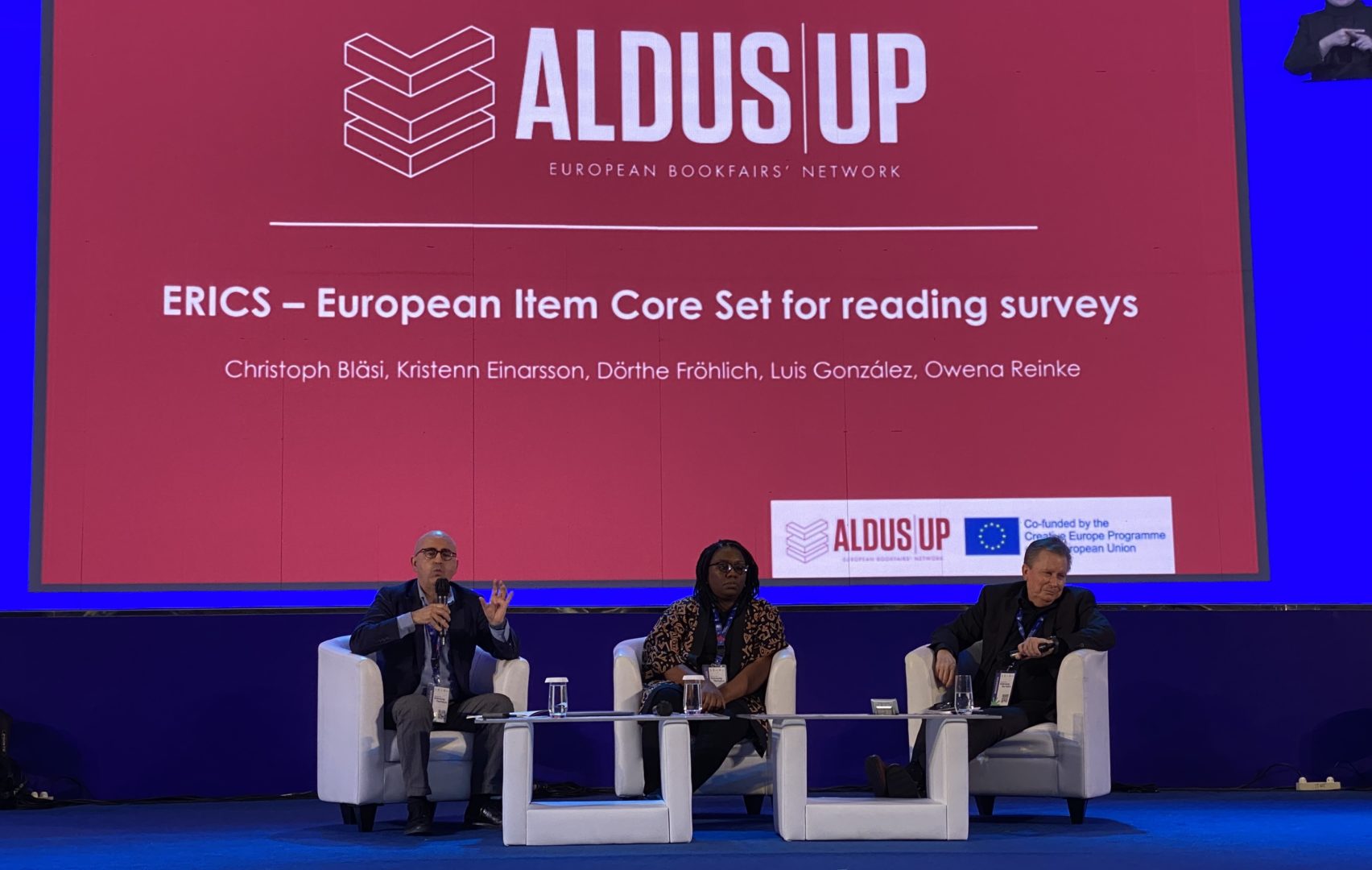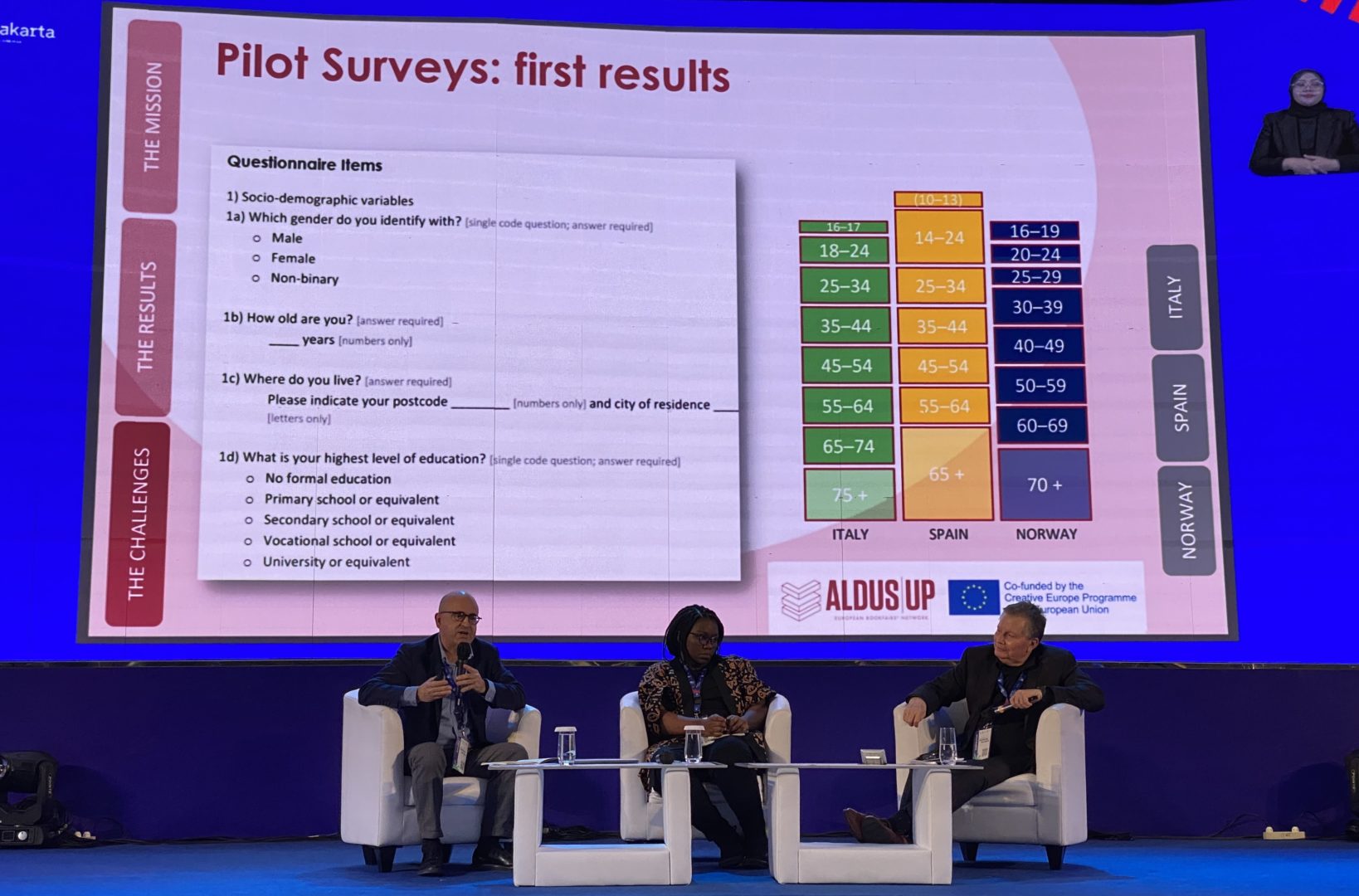On November 2022 (9th – 11th) the 33rd International Publishers Congress took place in Jakarta, under the motto “Embracing the future. Reading matters”. For the first time ever, the IPA congress was held in Southeast Asia. After a period of global stagnation caused by the Covid-19 pandemic, the congress was designed to promote the exchange of ideas and generate creative innovations.
Topics addressed by the congress included environmental sustainability in the book industry, freedom of expression and social media, copyright protection and artificial intelligence, innovation in children’s book publishing, marketing and distribution, trailblazing women in publishing, accessibility, educational publishing, diversity and translations.
In the session dedicated to reading behaviour and policies, the Aldus Up project was presented as a shared effort by various European organizations to contribute to the study of reading habits and the development of reading promotion initiatives.
Luis González, Managing Director of FGSR (Fundación Germán Sánchez Ruipérez), was invited as a guest speaker to present his insights on reading promotion and Aldus Up’s research activity on EU surveys on reading behavior. González explained the purpose of Aldus Up as a project financed by the Creative Europe programme. Specifically, he presented the first progresses towards the development of a common methodology to understand the evolution of reading behavior in European countries.

Building on the results of an explorative survey carried out in 20 European countries in 2021, the Aldus Up working group on reading identified some general requirements for a methodological approach to be adopted at EU level, and a set of variables defined as the EuRopean Item Core Set for Reading Surveys (ERICS). The working group was made up by Christoph Bläsi (Johannes Gutenberg University), Kristenn Einersson (Norwegian Publishers Association), Owena Reinke (Johannes Gutenberg University) and Luis González himself.
The audience was able to understand the scope and challenges of the project by means of a comparison of data from Italy, Norway and Spain. Indeed, while reading is the subject of many surveys in different European countries, it is challenging to compare the individual results and gather general conclusions about diverse trends and patterns. Thanks to the proactivity of the publishers’ associations of these three countries, progress has already been made in the pilot implementation of ERICS, in order to assess its effectiveness to collect homogeneous data on reading. An example of the usefulness of this global vision was given as the possibility of taking note of what happens in certain countries as a warning of what may happen in others.
There are trends that, due to sociodemographic, cultural or market reasons, may appear earlier in some places than in others; therefore, the identification of emerging trends in reading in EU can enable the design of more timely and effective response strategies.

Luis González explained that it is crucial to “read” or understand the meaning and consequences of these transformations during this axial period of digitalisation of our societies. By which, he stressed the usefulness of Aldus Up initiatives for the publishing industry, such as the work that resulted in ERICS. This is because, in a context of exponential changes, it is essential to find new ways to address readers and if necessary, change some priorities.
When closing his intervention, González linked the need to understand reading behavior patterns (in this case, in Europe) with the proposal of a new narrative for the advocacy of reading public policies. He expanded on the congress’ with the following question – Why reading matters? In this regard, he referred to the need to get out of the usual silo of cultural policies and underline the positive impacts of reading on health, society and economy, because reading is the main strategic asset within the digital society in XXI century.
Download the “European Item Core Set for Reading Surveys (ERICS)“ here

















